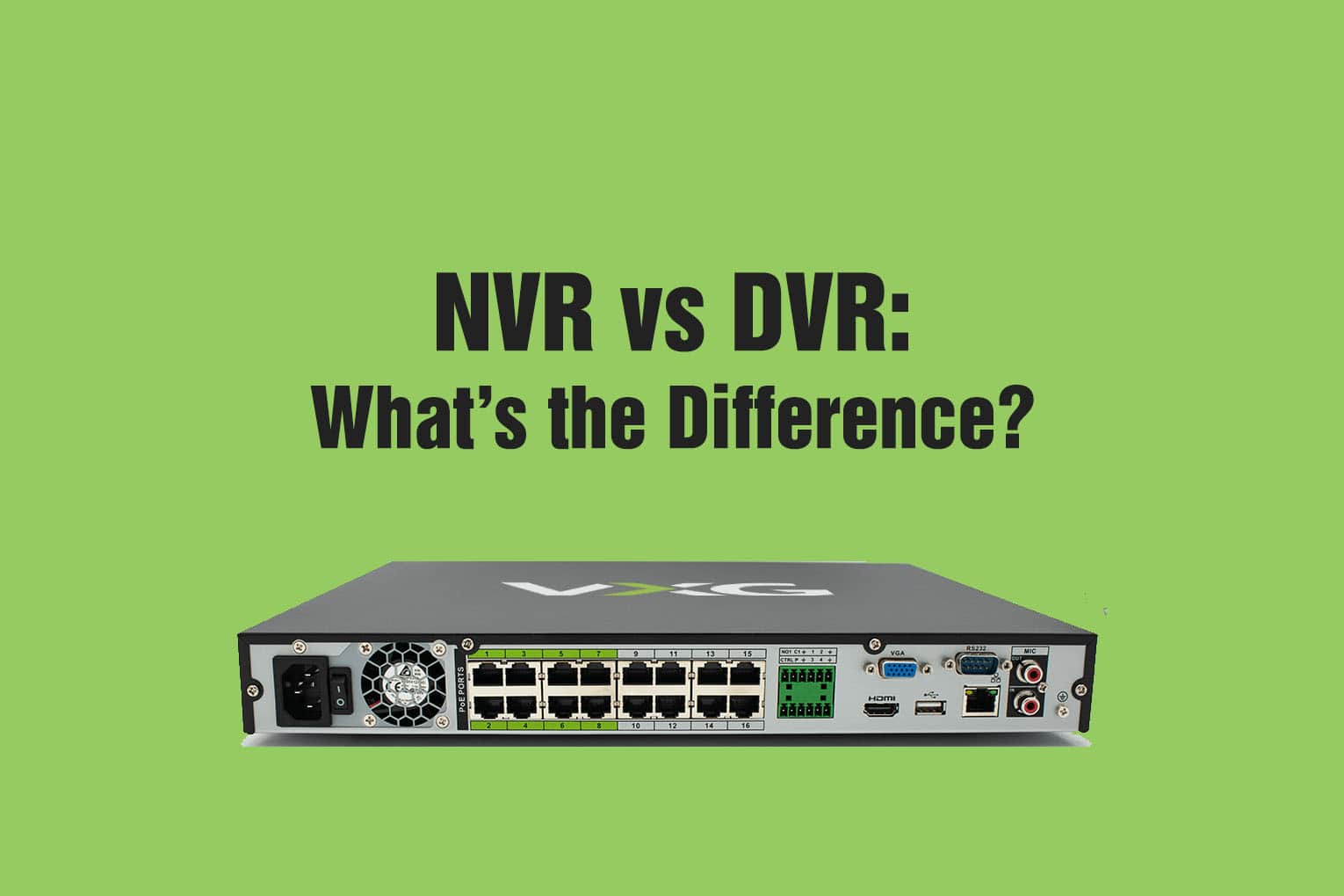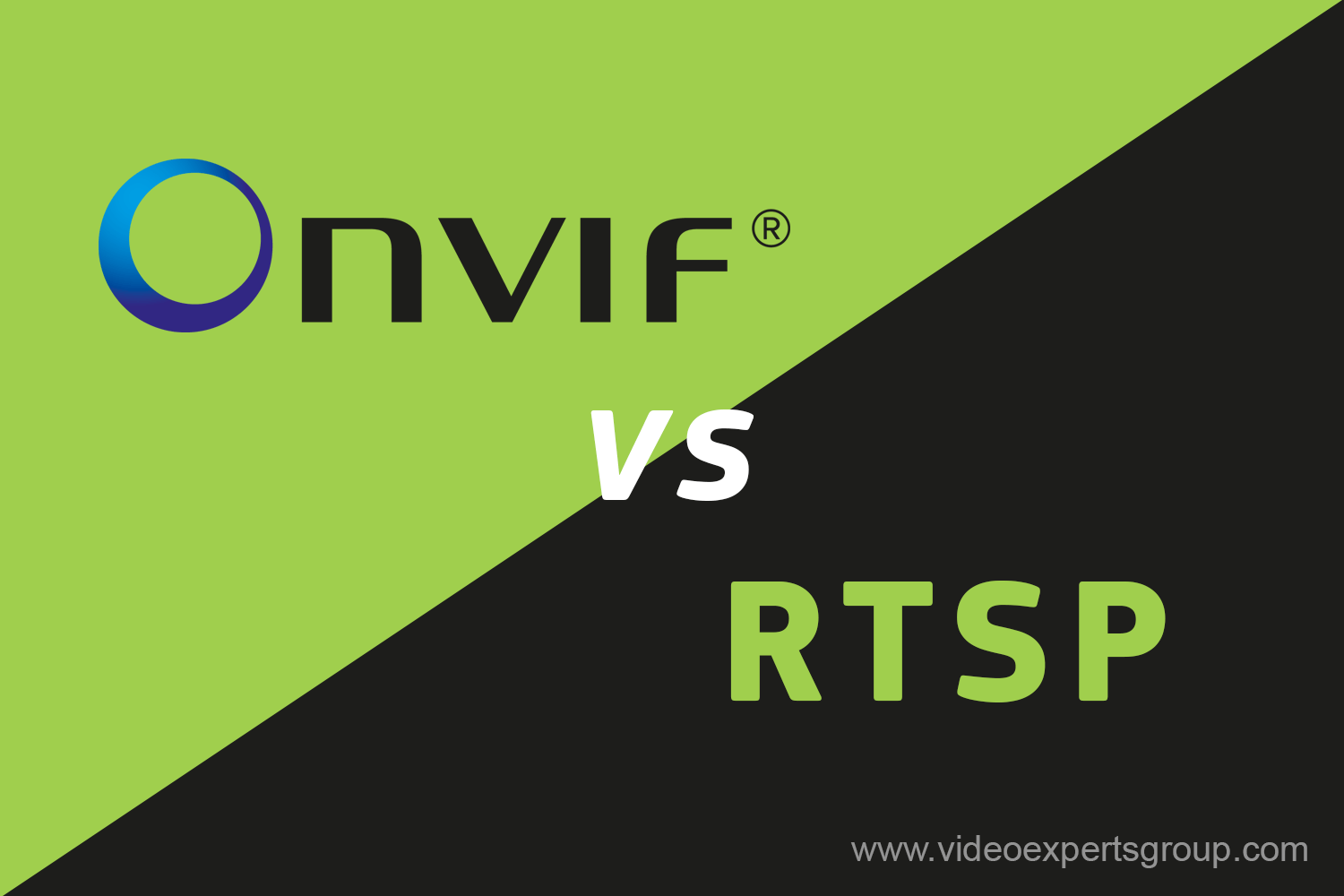NVR vs DVR: What’s the Difference?
An NVR (Network Video Recorder) and a DVR (Digital Video Recorder) are two popular solutions that play a crucial role in monitoring and securing our surroundings. Understanding the differences between NVR and DVR is essential for anyone seeking an effective video management system.

NVR vs DVR: What’s the Difference?
What is a DVR?
Digital Video Recorder, or DVR, has been a staple in the surveillance industry for quite some time. DVR systems are designed to record and store analog video signals from cameras using coaxial cables. These systems typically use BNC (Bayonet Neill–Concelman) connectors and are commonly associated with traditional CCTV (Closed-Circuit Television) systems. DVRs offer local storage solutions and are known for their reliability, simplicity, and cost-effectiveness.
What is an NVR?
Network Video Recorder, or NVR, is a modern video surveillance solution that leverages network technology to capture, store, and manage video footage. Unlike traditional DVRs, which use analog cameras and coaxial cables, NVR systems work with IP cameras that transmit digital signals over a network, typically Ethernet cables or Wi-Fi. NVRs often come with advanced features such as remote viewing, real-time alerts, and easy scalability.
NVR vs DVR: Pros and Cons
Pros of NVR:
- High Resolution: NVR systems support high-resolution IP cameras, providing clearer and more detailed video footage.
- Scalability: NVRs are easily scalable, allowing users to add more IP cameras to the network as needed.
- Remote Accessibility: With internet connectivity, users can access NVR footage remotely, enhancing monitoring capabilities.
- Intelligent Features: NVRs often include advanced features like motion detection, facial recognition, and object tracking.
Cons of NVR:
- Cost: NVR systems can be more expensive upfront, especially when considering the cost of IP cameras.
- Complex Installation: Setting up an NVR system might require more technical expertise, particularly when dealing with network configurations.
- Dependency on Network: NVRs rely on a stable network connection; any network issues may impact the system's performance.
Pros of DVR:
- Cost-Effective: DVR systems are generally more budget-friendly, making them a suitable option for smaller installations.
- Reliability: DVRs have a proven track record of reliability and stability in video recording and playback.
- Compatibility with Analog Cameras: DVRs work seamlessly with analog cameras, making them a viable option for existing CCTV systems.
Cons of DVR:
- Lower Resolution: DVR systems are limited by the resolution of analog cameras, resulting in lower-quality video compared to NVRs.
- Limited Scalability: Expanding a DVR system may involve more complex processes, and there may be limitations on the number of supported cameras.
- Local Storage Only: DVRs usually rely on local storage, which can be a limitation in terms of capacity and accessibility.
What is Better: DVR or NVR?
The choice between DVR and NVR ultimately depends on specific needs and preferences. For those seeking a cost-effective solution with existing analog cameras, DVR might be a suitable choice. However, for users prioritizing high-resolution footage, scalability, and advanced features, NVR systems are worth the investment. Consider factors such as budget, system requirements, and future expansion plans when deciding between NVR and DVR to ensure the selected solution aligns with your surveillance goals.















